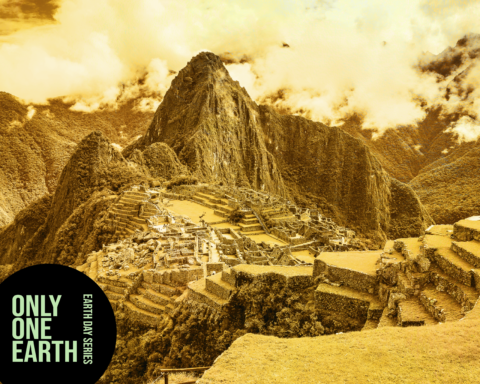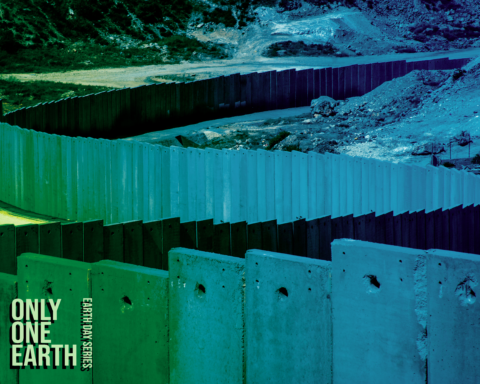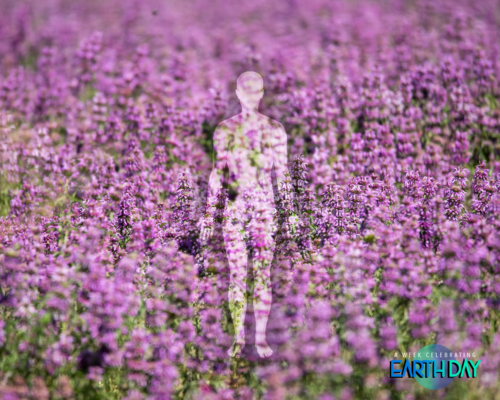Before the coronavirus pandemic hit, a group of laity and clergy that I facilitate had spent a number of months drafting and finally releasing a call to action that was based on what might be called “crisis theology.” The call to action urged churches to develop all-out mobilization plans to address the twin, intertwined crises of climate and inequality. The theological underpinnings for this call built upon theological traditions with roots that extend back to the trenches of World War I, the frontlines of the anti-apartheid movement, and the battlefronts of the civil rights movement. The coronavirus has now made these theologies that arose amid crisis all the more prescient and relevant for today.
At the heart of these theologies is a Greek word that at first blush seems obscure and odd as a touchstone for survival and resistance in the worst of times. The word is “kairos,” and it became a point of theological fixation for a young chaplain in World War I named Paul Tillich. Unlike English, Greek has two words for “time.” One—chronos—connotes time that is quantitative and measurable like a ticking clock. The other—kairos—is more qualitative and signifies the right action being taken at just the right moment. For Tillich, the biblical use of the word kairos pointed to a divine presence amid times of crisis.
During the anti-apartheid movement, kairos again became a point of theological focus. This time it was for a group of laity, clergy, and theologians that began meeting in Soweto during a peak period of government violence. President P.W. Botha had declared the First State of Emergency which unleashed a brutal and lethal wave of repression against the anti-apartheid movement. The theology produced in this moment was not the comfy armchair theology of ivory towers but rather the theology born of struggle during the heat of battle. Ultimately, the group released what was called “The Kairos Document.” As the title suggests, the heart of this manifesto was an explication of what kairos meant in their particular time of crisis.
It is part of this document that seems especially fitting for the present moment. A key theological contribution of the document was its focus on kairos as a moment of truth. Cloaks and veils, disguises and obfuscations are pulled down to reveal a stark, exposed reality. For those gathered in Soweto, it was particularly a time of truth for the Church. No longer could the Church hide “what it really is.” It could no longer sit on the fence or stand on the sidelines. It had to take a side.
The United States as a whole is now experiencing a moment of truth as inequalities are laid bare. In The New Yorker, Adam Gopnik reflected upon New York City amid the coronavirus crises, observing, “The secession of the very rich, the isolation of the well-off, the degradation of social capital by inequality: these truths become sharply self-evident now.” The subways populated by the workers upon whom the functioning of our society depends and who have no other transportation options have become symbolic of a kind of environmental classism in which some stay safe and secluded at home while others must brave the viral minefields of the frontlines.
Another significant truth of this moment pertains to accumulated injustice. The racial disparities of Covid-19 deaths, evident in places like Detroit, Chicago, and Louisiana, reflect a public health crisis that has been years in the making as one injustice after another is layered upon the next. Disparities of race and class have long been reflected in illness and disease. Covid-19 exacerbates and accelerates this pre-existing trend. As the Rev. Larry Simmons in Detroit noted, “We see the same thing we always see: There’s a fundamental inequity in America, and this crisis of corona has just revealed it.”
In my organization’s own work to address toxic air pollution, I have seen this truth come to the surface in the most heartbreaking of ways. On Ash Wednesday, the United Church of Christ released a report entitled “Breath to the People: Sacred Air and Toxic Pollution.” It details 100 super polluters across the nation and the demographics of the surrounding communities that suffer from their toxic air emissions. Those communities were more likely to be comprised of people of color and low-income households. Moreover, the super polluters and the surrounding communities often tended to be located in specific geographic regions like cancer alley, an area that stretches along the Mississippi from Baton Rouge to New Orleans.
Cancer alley has 142 facilities that reported toxic emissions to the EPA in 2018. Eleven are in our list of 100 super polluters, and four are in the top ten. Cancer alley has been a reoccurring presence in the news for decades because of its chronic, unchecked industrial pollution. It is now making the headlines again. One of the counties in cancer alley is St. John the Baptist Parish, and it now suffers the highest death rate for Covid-19 out of any county in the nation with a population of over 5,000. In our ranking of super polluters, two were in St. John the Baptist Parish: #7 Denka Performance Elastomer and #45 Evonik Materials.
Environmental scientist Wilma Subra notes, “The Denka facility has been releasing toxic chemicals into the air for 50 years. All the community have some type of respiratory impact, some more than others. But they’re already very vulnerable.” As a result of accumulated environmental injustices, Covid-19—with its particularly devastating attack on the lungs—has arrived with a staggering force. While the pandemic may bring to mind the plagues of Exodus for some, it is ultimately the long-endured oppression of the Israelites in Egypt for 430 years that is the more apt association.
In a later period, Jesus confronted the accumulated injustices of the Roman Empire. It was thus that his first words in the Gospel of Mark are all the more powerful. Jesus declares, “The time (kairos) is fulfilled, and the kingdom of God has come near.” Jesus was speaking in a moment of crisis following the arrest of John the Baptist, but he was also speaking in the moment in which the dreams of generation after generation were suddenly being fulfilled. Amid crisis, the kairos moment is paradoxically one of potential realized. During the civil rights movement, Martin Luther King, Jr. would define kairos as a time in which “history is pregnant, ready to give birth to a great idea and a great movement.”
As the nation faces the ugly truths before it, churches must now face these same truths as well. May it be a time of kairos. May it be a time of possibility, of potential realized, of a people awakening and responding to God’s enduring call for justice.
The Rev. Dr. Brooks Berndt is the Minister of Environmental Justice for the United Church of Christ and the author of the recently released Cathedral on Fire: A Church Handbook for the Climate Crisis.






Unbound Social